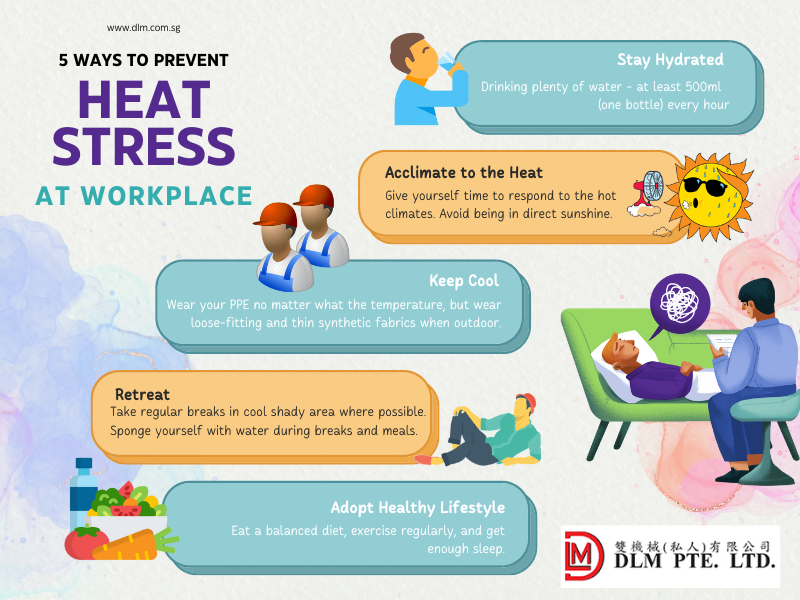You can treat heat stress, but prevent it is even better.

Rising global temperature is increasing the risk of workplace heat injuries. Working in Singapore’s hot and humid weather can put you at an increased risk of heat stress.
Heat may affect a worker’s ability to concentrate on a given task through decreased cognitive function, increasing the chance of making mistakes, and reducing productivity.
Heat stress occurs when the body is unable to remove excess body heat, and this excess accumulated heat then harms the body. Symptoms of heat stress include:
- Sweating profusely
- Difficulty focusing or performing various tasks
- Headache
- Muscle Cramp
- Overheating sensation (hot skin)
- Severe thirst & Dehydration
- Loss of consciousness / Fainting
Heat stress related illnesses range from milder conditions such as heat rash, heat cramps, and heat exhaustion. The serious heat related illnesses include heat stroke, which can be fatal or cause permanent disability if medical treatment is not administered promptly.

dlm, dlm pte ltd, bca dlm, mechanical engineering, electrical engineering
Preventing Heat Stress
Heat stress must not be overlooked, and each of us should take the necessary measures to protect ourself from the heat-related risks.
5 Ways to Prevent Heat Stress at Work
- Stay Hydrated – Drinking plenty of water – at least 500ml (one bottle) every hour.
- Acclimate to the Heat – Give yourself time to respond to the hot climates. Avoid being in direct sunshine.
- Keep Cool – Wear your PPE no matter what the temperature but wear loose-fitting and thin synthetic fabrics when outdoor.
- Retreat – Take regular breaks in cool shady area where possible. Sponge yourself with water during breaks and meals.
- Adopt Healthy Lifestyle – Eat a balanced diet, exercise regularly, and get enough sleep.


